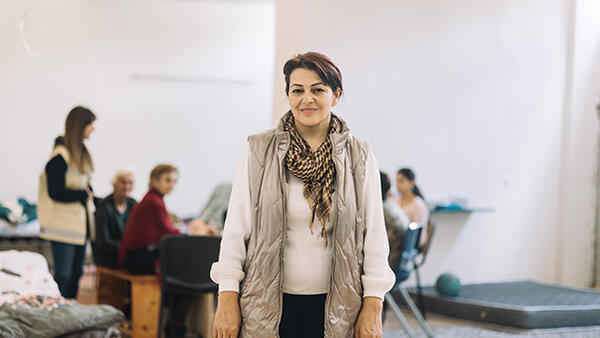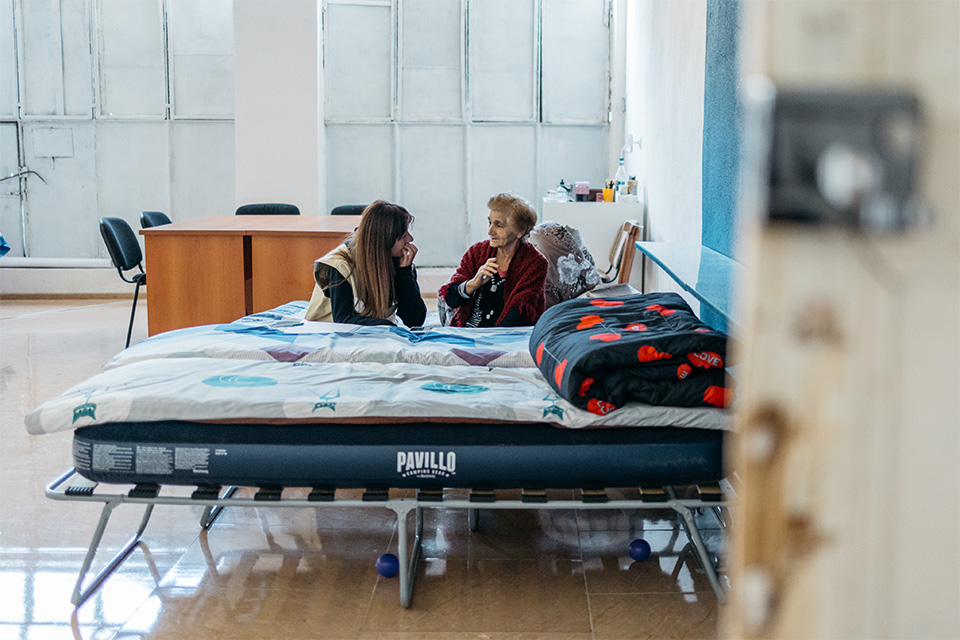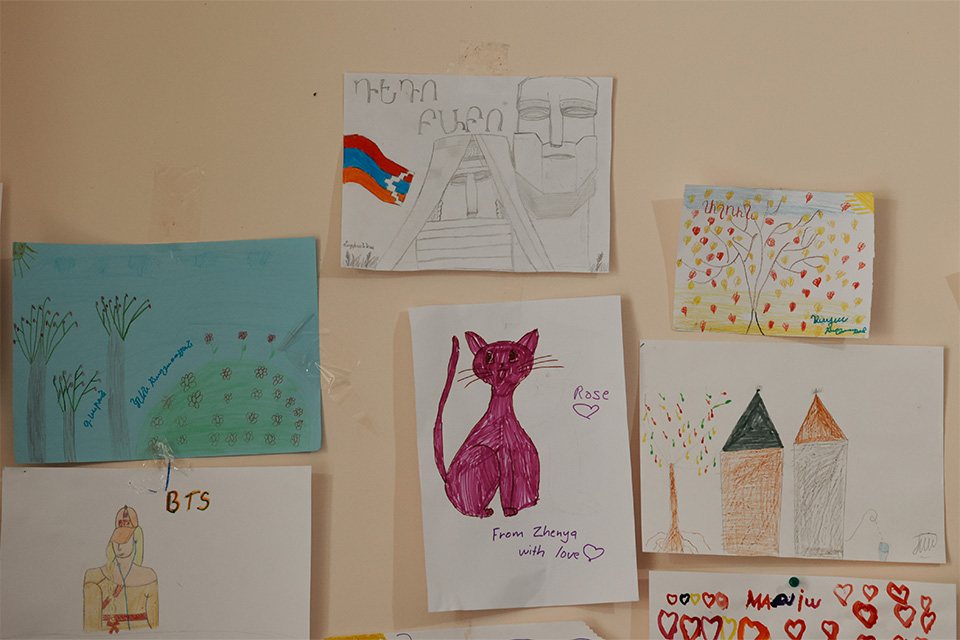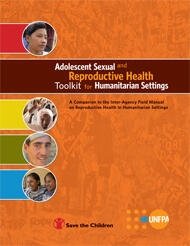
Carving out a new life in Armenia
Generations of families who fled conflict in Karabakh face an uncertain future
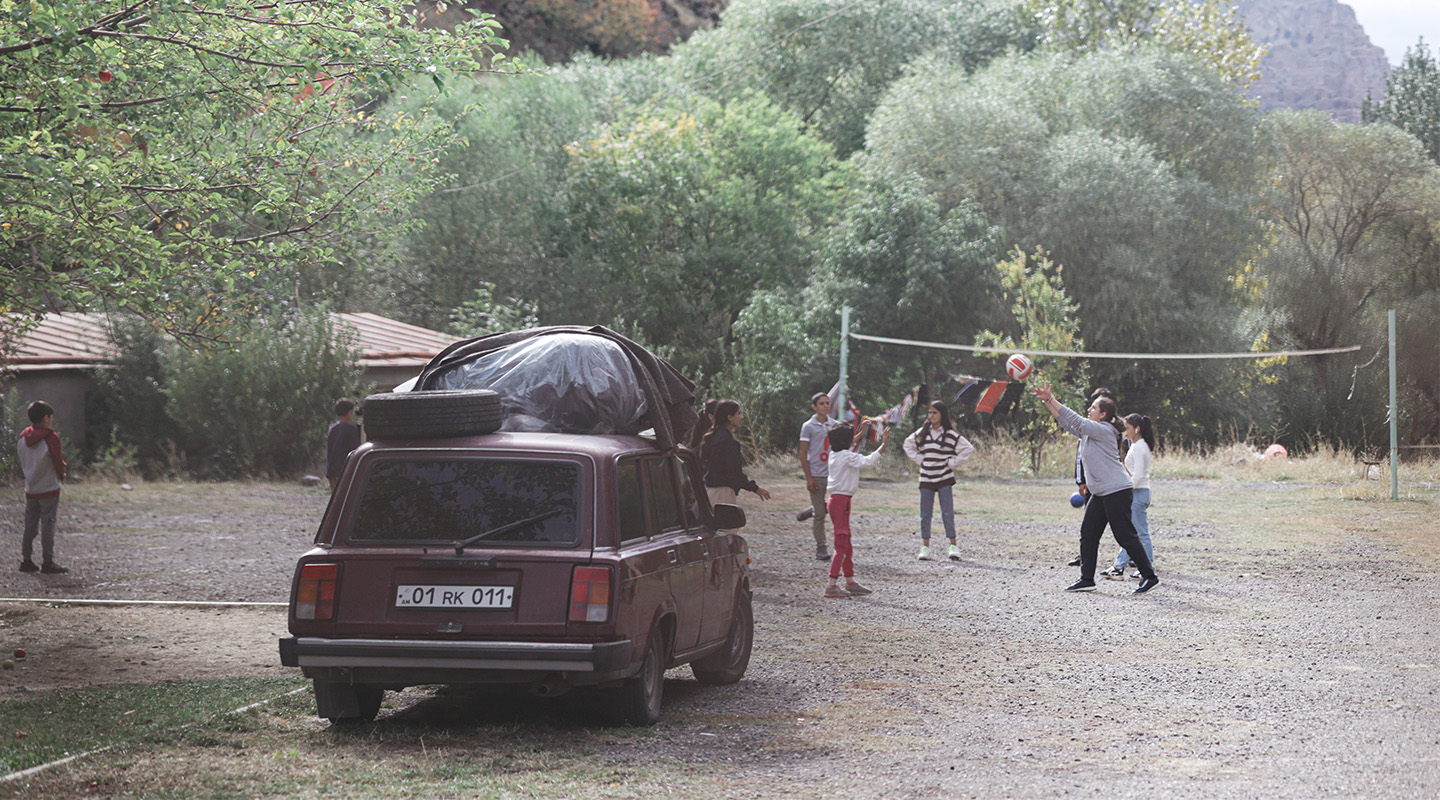
Mari, a 25-year-old mother of two, was at home when she heard the sound of bombs falling on 19 September in Karabakh, the region at the heart of a long-running territorial conflict between Armenia and Azerbaijan.
“It was a real-life nightmare. My elder son was at school, the younger one at the kindergarten,” she says, tears rolling down her face. “I didn't know which way to run, whom to save first. It was just horrible.”
More than 100,000 ethnic Armenians in Karabakh crossed the border into Armenia after hostilities escalated in late September.
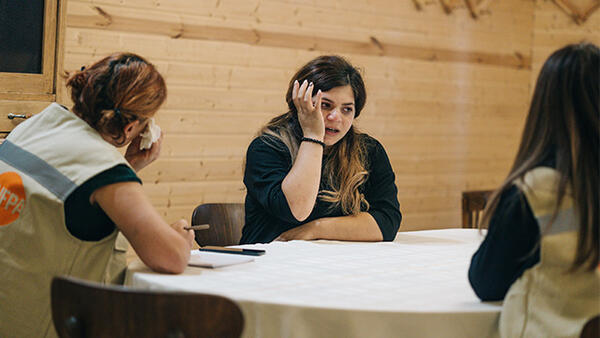
For Mari – who is also pregnant – and her family, the journey, which would usually take a little more than two hours, instead took 28, and was fraught with anxiety.
“I was terribly frightened while crossing the border,” she says. “We saw the bombing of our houses. But thank God, we are here now, alive and safe.”
Mari and her sons are staying at a Safe Space supported by UNFPA. At nine months pregnant, she will have access to trained health workers when she goes into labour.
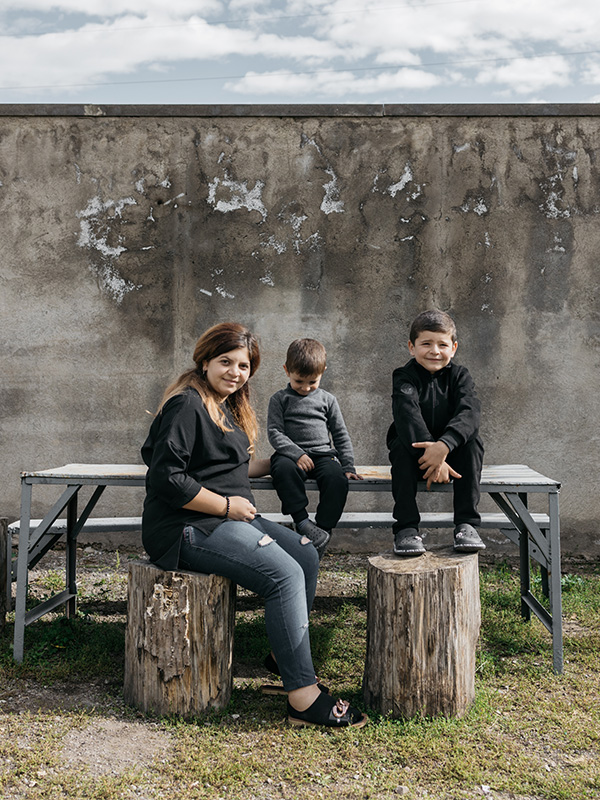
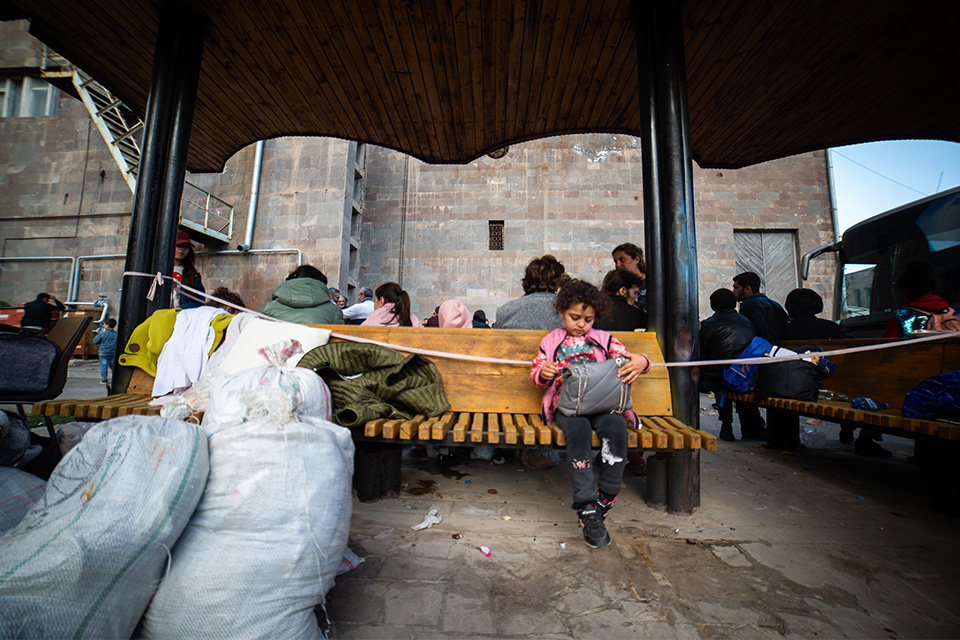
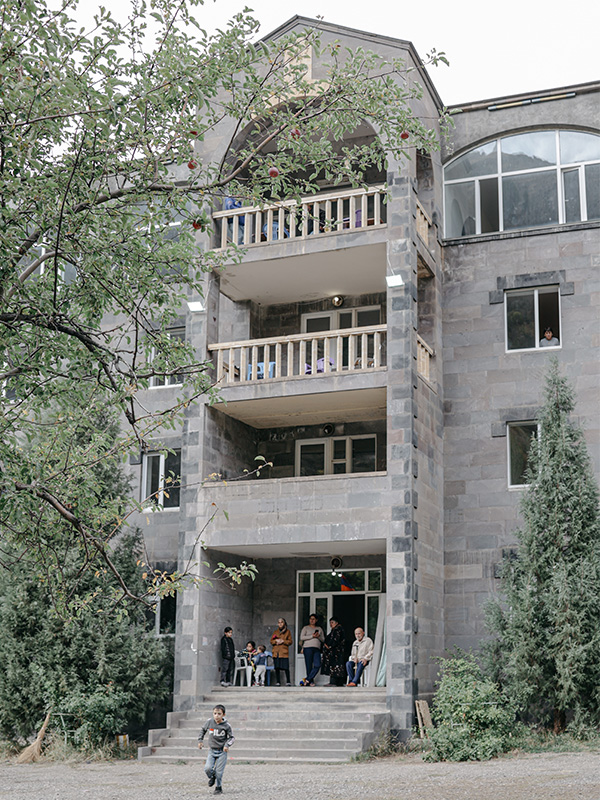
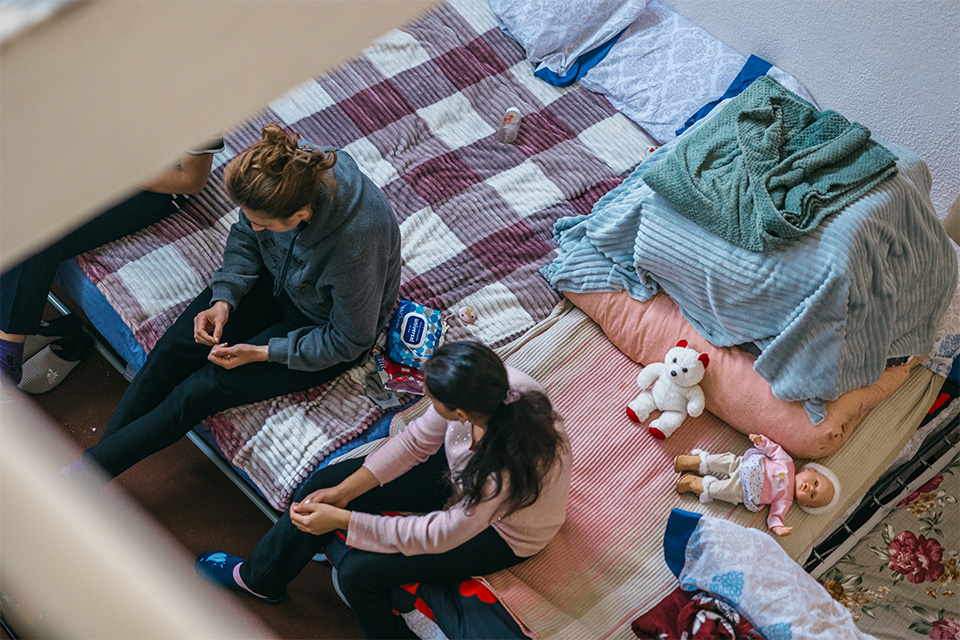
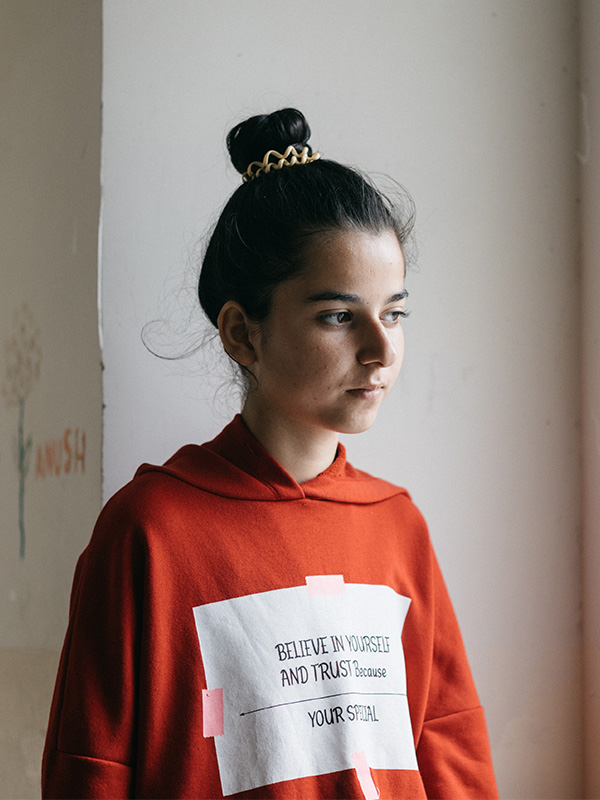
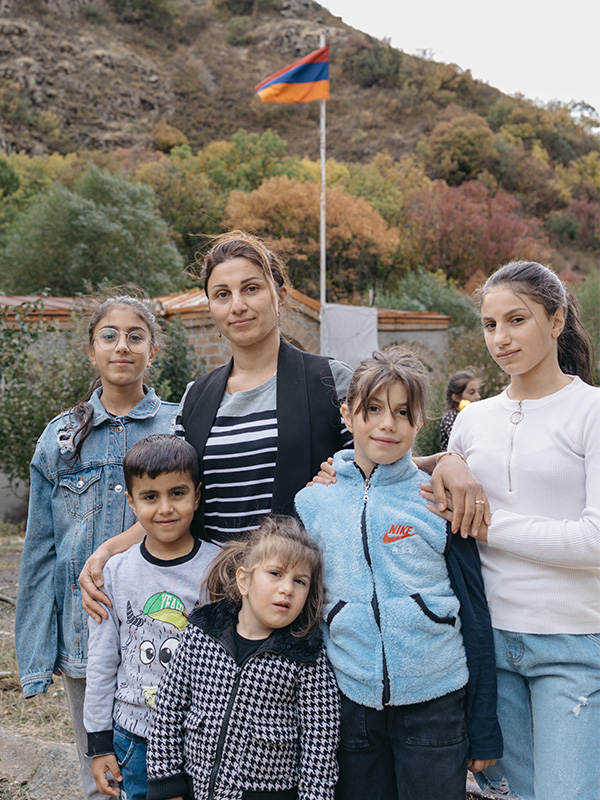
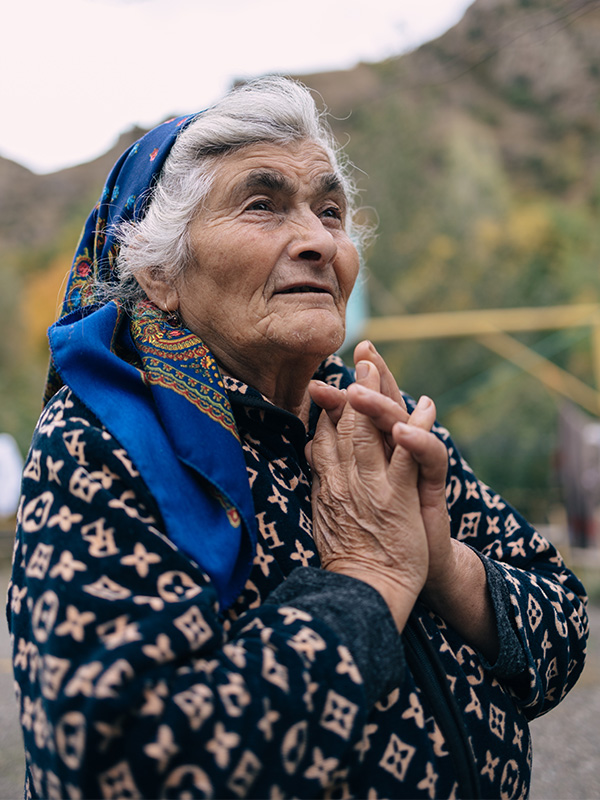
With so many people displaced in a short period of time, existing services came under major strain.
UNFPA provided support through Safe Spaces and psychosocial services, as well as through training health workers on sexual and reproductive health care and distributing supplies – including some 21,000 dignity kits containing essential hygiene items for women and girls along with information on government services.
UNFPA is planning to procure an additional 20,000 dignity kits for the most vulnerable population, in addition to establishing more Safe Spaces, among other initiatives.
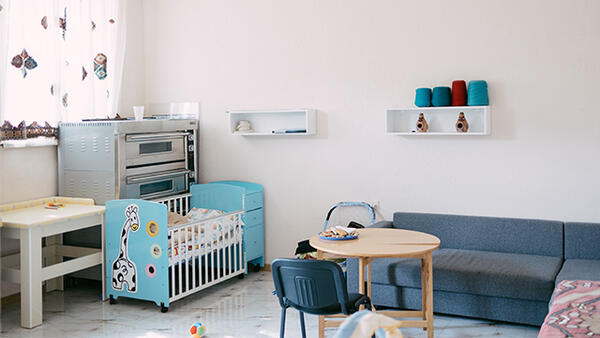
The supplies and health care services are desperately needed to prevent tragedy.
“One night, a pregnant refugee woman arrived, bleeding and in distress. We swiftly intervened, but sadly, displacement-induced stress led to a miscarriage,” says Dr. Metaksya Hovhannisyan, head of midwifery at the Vayk Medical Association. “If we hadn’t stopped the bleeding in five minutes, we would have lost her too.
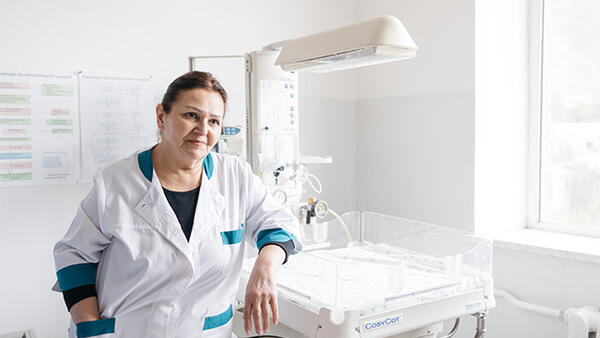
Women and girls of all ages are among the refugees, with around a third reportedly under the age of 18.
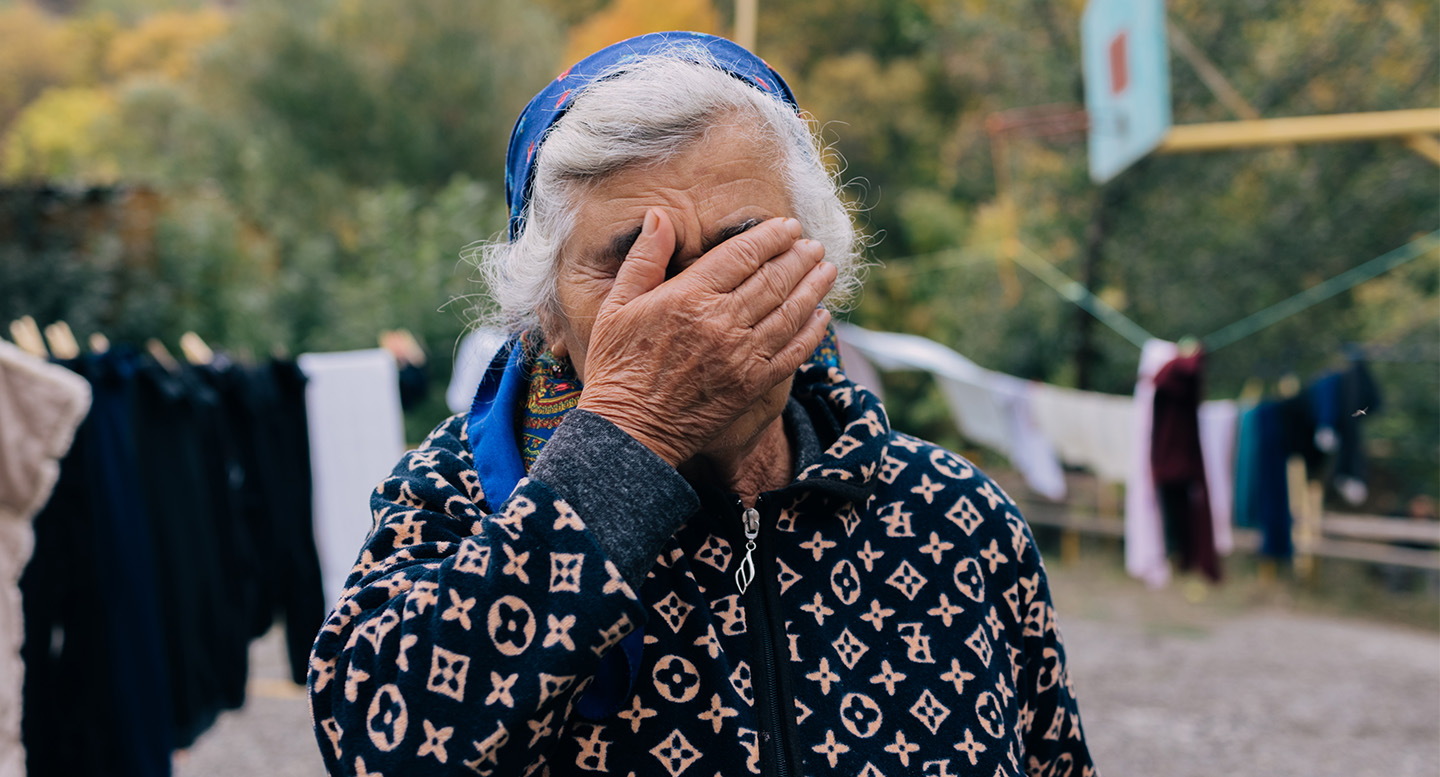
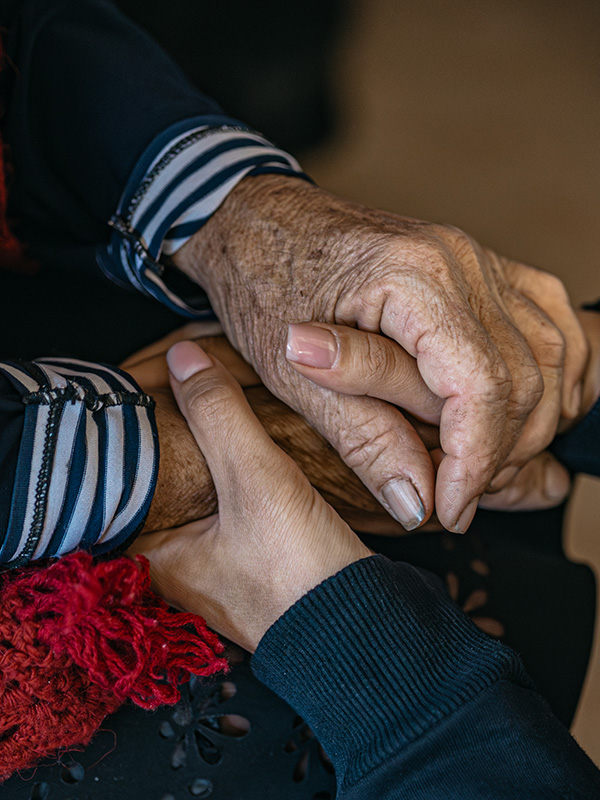
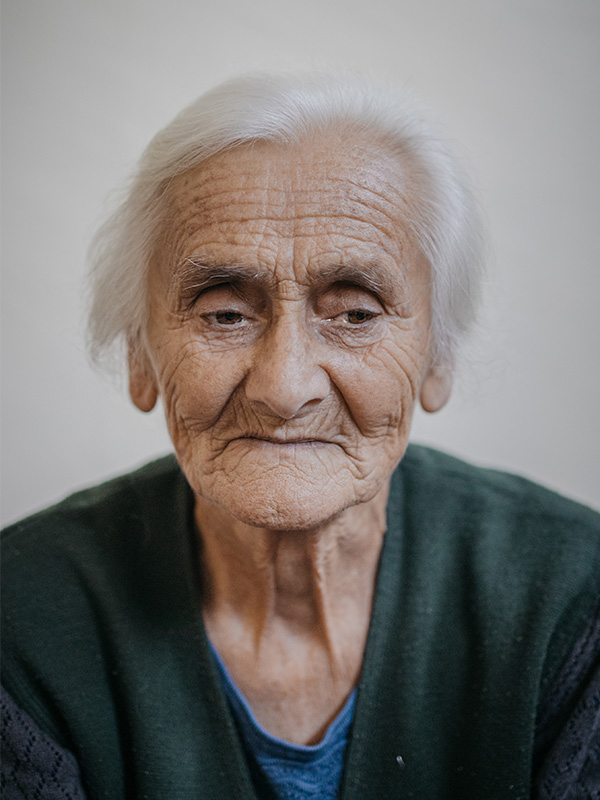
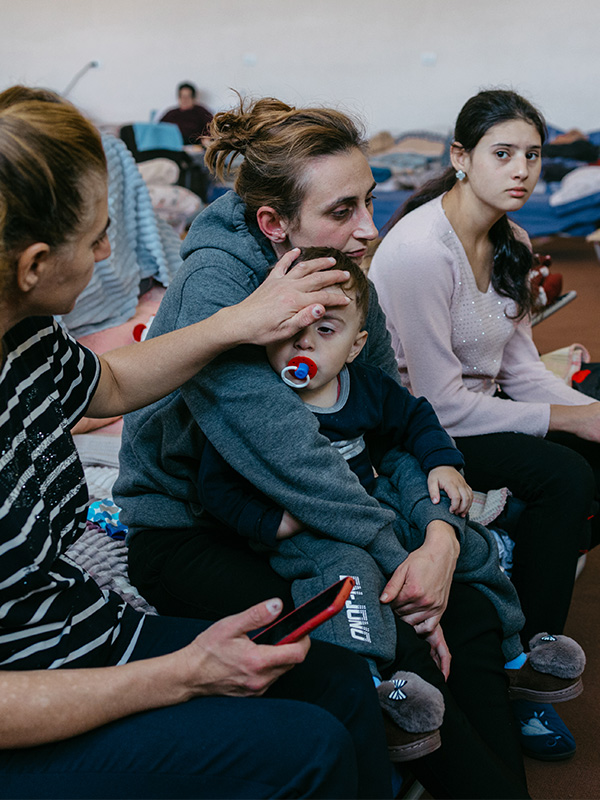
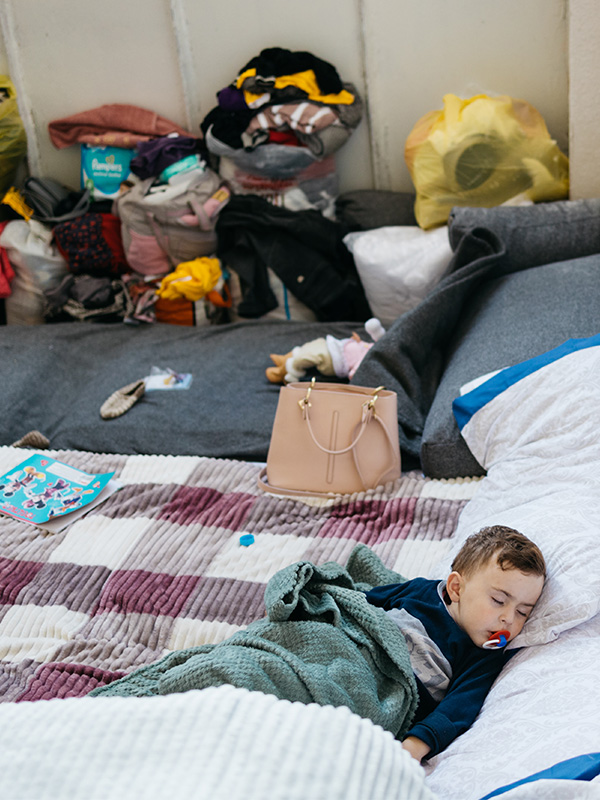
The daughters and granddaughters of Melania, Roza and so many others need the opportunity to work in order to support themselves and their families.
The long-term welfare of refugees is something that concerns Ruzanna Torozyan. She is the director of WINNET, a UNFPA partner organization that runs Safe Spaces in Goris and Verishen.
“It is crucial that immediately after the humanitarian support, we engage in the second phase of rehabilitation and development,” she says. “Creating job opportunities for women and girls should be organized quickly so that people have stability.”
